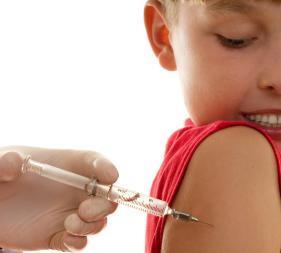Experts urge integration of adult vaccines into routine care to save lives
New data from the Centers for Disease Control and Prevention (CDC) paint a gloomy picture of adult immunization against serious infectious diseases in the United States.
In addition, a new consumer survey shows the vast majority of adult Americans lack awareness of vaccines and the severity of infectious diseases.
A panel discussed the data at a press conference held by the Maryland based National Foundation for Infectious Diseases (NFID), which called for increased use of vaccines in adults to reduce needless illness and deaths associated with infectious diseases.
CDC's National Immunization Survey shows only 2.1 % of adults 18 to 64 years of age are immunized against tetanus-diphtheria-whooping cough. Immunization to prevent shingles among people 60 and over was only 1.9 %. Vaccine coverage for the prevention of HPV (human papillomavirus) among women 18 to 26 is about 10 %. In addition, influenza and pneumococcal vaccination rates for the elderly are well below the 90 % national target rates.
‘Routine immunization of children in the United States has saved hundreds of thousands of lives and prevented millions of cases of disease, but vaccines are not just for children,’ said Anne Schuchat, MD, director of the CDC's National Center for Immunization and Respiratory Diseases. ‘These new data show there are not yet very many adults taking full advantage of the great advancements in prevention that have been made in the past few years.’
‘There are now 17 diseases that can be prevented from vaccines given to children, teens and adults. Several vaccines, including three fairly new ones licensed since 2005, are recommended specifically for the adult years. By skipping vaccination, people are leaving themselves needlessly vulnerable to significant illness, long-term suffering and even death,’ said Dr. Schuchat. ‘We are extremely fortunate in this country to have safe and effective vaccines available, but we have to use them better.’
Immunization is recommended for U.S. adults to protect them against chickenpox, diphtheria, hepatitis A, hepatitis B, human papillomavirus/cervical cancer (HPV), influenza, measles, meningococcal disease, mumps, pertussis (whooping cough), pneumococcal disease, rubella, shingles and tetanus.
‘Combined, these infectious diseases kill more Americans annually than either breast cancer, HIV/AIDS or traffic accidents,’ said William Schaffner, MD, Vice President of NFID and Chairman of the Department of Preventive Medicine at Vanderbilt University School of Medicine
‘A concerted effort is needed to raise adult immunization rates,’ said Dr. Schaffner. ‘The important thing to remember is that deaths and illness associated with these infections are largely avoidable through vaccination.’



















No comments yet